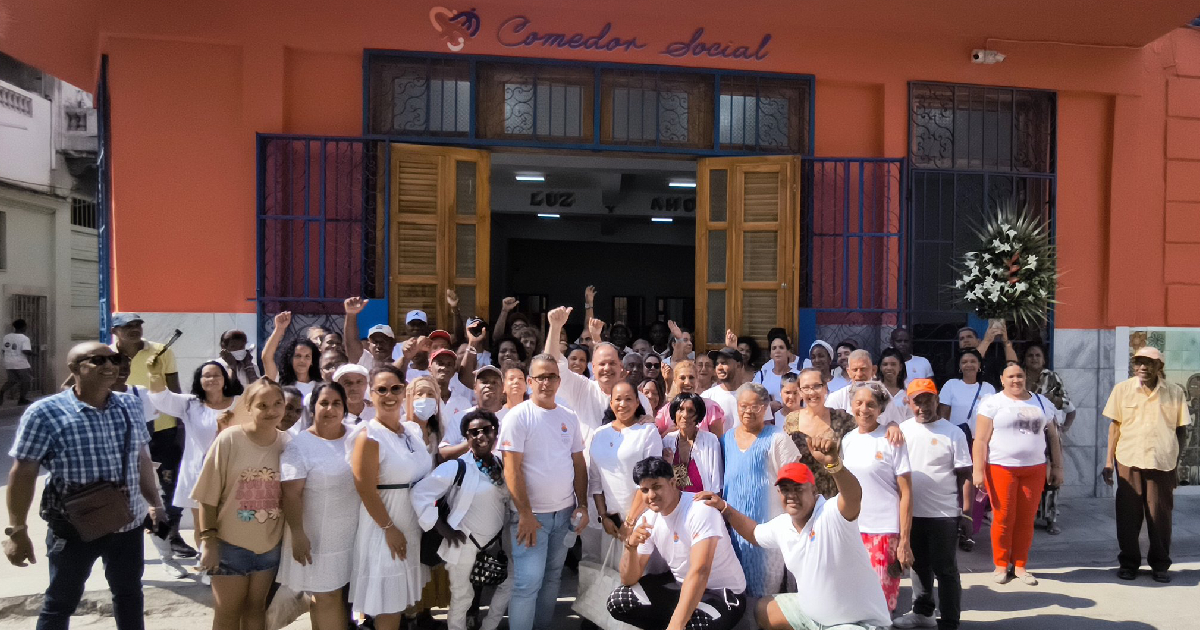Following their assembly of associates, the Cabildo Quisicuaba, a Cuban spiritist group, declared their commitment to saving the revolution, though they did not specify the perceived threats. "At the General Meeting of Associates of the Quisicuaba Religious Institution, we reaffirm our spiritist vocation to save the homeland, the revolution, and socialism," they announced on social media platform X.
Quisicuaba has demonstrable ties with senior leaders of the Cuban government. Visits from designated leader Miguel Díaz-Canel, government ministers, and state officials underscore these connections. Following the meeting, Lis Cuesta Pedraza, the wife of the Cuban ruler, was the first to congratulate them, celebrating their event on Twitter.
According to a report by the digital portal 14 y Medio, whenever Quisicuaba addresses the media, including international outlets, "the government praises Quisicuaba's 'social' work." Its director, Enrique Alemán, who is also a deputy in the National Assembly of People's Power (ANPP), noted that their social work in aiding impoverished population groups in the capital is justified, with an increasing number of residents in need on the island. Alemán highlighted in an interview with the pro-government portal Cubadebate that their facility serves meals to over 4,000 homeless and "vulnerable" individuals daily in a Havana dining hall.
However, 14 y Medio points out that if this number were accurate, it would mean feeding three people per minute continuously throughout the day. Their social dining facility, located on Maloja Street in Central Havana, "strives to ensure that the regime is not unfavorably portrayed."
They also operate an "assisted living center" in San Antonio de los Baños, Artemisa province, converted from an abandoned rural pre-university facility, hosting 113 residents with plans to accept an additional 24 soon. All were initially served at the Havana dining hall before being moved to the "camp." "One of our fundamental premises is self-sufficiency, including our social dining hall. For this, we've requested unused land from agriculture and now produce charcoal for cooking, as well as growing bananas, sweet potatoes, taro, pumpkin, yucca, and beans. We also have an organoponic garden and a livestock module," stated Yadelkis Hernández Morales, the director of the center.
Despite their charitable claims, the increasing number of beggars and impoverished individuals in Cuba exceeds Quisicuaba’s efforts. Although they are close to the regime, members of this politically charged social project should be aware that, according to the Ministry of Labor and Social Security (MTSS), between 2014 and 2023, 3,690 homeless people were registered in Cuba. This figure does not include those who, for various reasons, have resorted to begging outside churches or to the sparse number of tourists visiting the island each year, nor does it account for those who, due to high prices, food shortages, and low pension salaries, have had to scavenge through trash for sustenance.
Clearly, statistics are a crucial ally in backing these arguments, especially considering that according to the 2012 Population and Housing Census, the last one conducted in Cuba, over 1,100 people were living on the streets. By 2015, this number had increased to 1,261, according to a report by the newspaper Trabajadores.
Additionally, the Cuban Observatory of Human Rights (OCDH) reported in September 2023 a concerning rise in extreme poverty in Cuba. The NGO detailed in their VI Report on the State of Social Rights in Cuba that "88% of Cubans live in extreme poverty, an increase of 13% from 2022."
